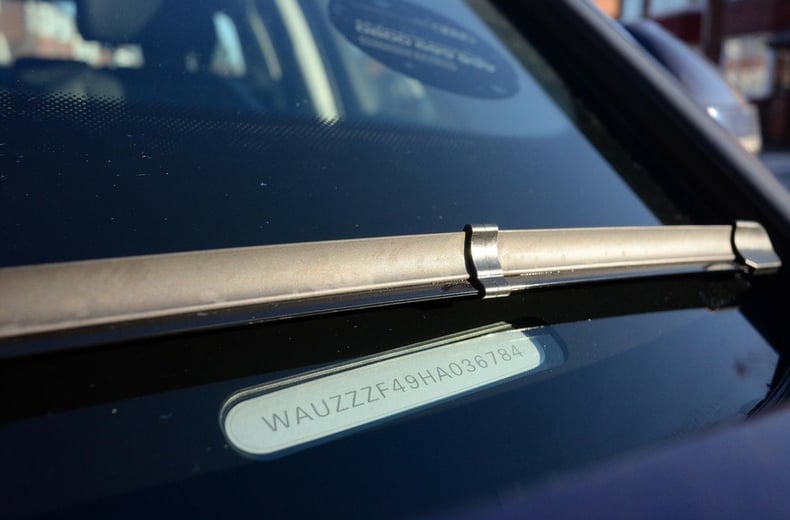Buying a used vehicle can save you money over purchasing new, but it comes with increased risk of inheriting someone else’s problems. With a quick VIN check before handing over your hard-earned cash, you can minimize the chance of buyer’s remorse. Here’s your guide to unraveling a used car’s past using the Vehicle Identification Number (VIN).
What is a VIN and How Do You Find It?
All vehicles sold in the US since 1981 feature a unique 17-digit VIN etched or stamped in multiple locations. As the car’s fingerprint, no two are alike even among same make/model. The VIN reveals crucial information coded within it tracing the vehicle’s history and specifications.
Finding the VIN is the critical first step for verification:
- Dashboard: Visible through the driver-side corner of the windshield
- Driver-side door jamb & engine block: Check tiny plaque mounts
- Registration and insurance documents
- Front right quarter panel and firewall: Check for engraved marks
Once located, copy the full VIN accurately to begin your detective work
Obtain a VIN Report from Major Data Trackers Third-party VIN check services like Carfax and Autocheck provide detailed records based on information supplied from state DMVs, manufacturers, insurers and other sources. They can uncover:
- Accidents, damage repairs, odometer fraud
- Open safety recalls and maintenance intervals
- Verified ownership history with registration dates
- Prior use types (rental, fleet, private party)
Carfax offers unlimited reports for one vehicle for around $40 within 60 days or $10 for single report. Autocheck and competitors have similar pricing for full VIN data access. Free VIN checks also exist but offer limited encapsulated history.
Research Vehicle Specs, Recalls and Value
Armed with the free VIN check tools below, get to know what’s under the hood and determine fair market value:
- NHTSA: Search for safety and recall information from the official government agency, critical for evaluating risk.
- Edmunds: Features thorough decoding of VIN-specific drivetrain configurations, features, size parameters and MSRP.
- KBB & NADA: Estimate accurate price ranges based on mileage, condition and actual equipment for negotiation leverage.
These universal VIN searches using trusted appraisal sources give you an information edge when it comes time to strike an ideal used vehicle purchase deal.
Identify “Red Flags” in the VIN Report
Assuming no glaring issues surface initially, scrutinize the VIN report details with a fine-toothed comb:
- Accident damage markers – Clear titles can still hide repaired wreck history. Cross-reference Carfax with Autocheck reports.
- Odometer irregularities – Check for any isolated mileages decreasing over time or periods unaccounted for.
- Title brands – Words like “salvage”, “rebuilt” or “flood” indicate prior extreme damage.
- High owner turnover – Frequent buying/selling in short periods may signal underlying problems.
- Rental company history – Often indicates harder use and the need for closer mechanical inspection. Bold items require following up with dealers for explanation or service records before purchase. Consider an independent mechanic inspection as well to catch issues reports missed.
VIN Checks Protect Your Investment
Like a detective, assembling VIN details from every free and paid source paints a reliable picture of a used vehicle’s past and expected longevity that conversation alone with a seller cannot. For around $50 total typically, the peace of mind gained from comprehensive VIN verification is invaluable compared to the thousands you pledge towards vehicle ownership. Conducting thorough due diligence using a car’s VIN unlocks its history…and determines whether your next ride will be a lemon-free dream vehicle at the right price.

